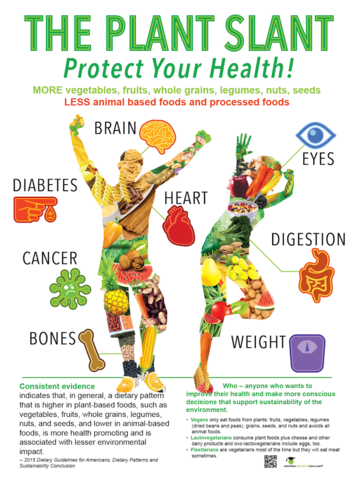As technology continues to advance, more and more women are turning to plant-based diets for a healthier lifestyle. Not only are plant-based diets beneficial for the environment, but they also have numerous health benefits for women. In this article, we will discuss the benefits of plant-based eating for women and provide practical tips for incorporating more plant-based foods into your diet.
Benefits of Plant-Based Eating for Women
1. Improved Digestive Health
Plant-based diets are high in fiber, which can help improve digestion and prevent constipation. Fiber also feeds the good bacteria in your gut, promoting a healthy gut microbiome and reducing the risk of digestive issues such as bloating and gas.
2. Reduced Risk of Chronic Diseases
Studies have shown that a plant-based diet can reduce the risk of chronic diseases such as heart disease, diabetes, and certain types of cancer. Plant-based foods are rich in antioxidants, vitamins, and minerals that can help protect against these diseases and improve overall health.
3. Weight Management
Plant-based diets are naturally lower in calories and fat than animal-based diets, making them a great option for women looking to manage their weight. In addition, plant-based foods are high in fiber and water content, which can help you feel full and satisfied while consuming fewer calories.
4. Hormone Balance
Some studies suggest that plant-based diets can help balance hormones in women, leading to reduced PMS symptoms and a more regular menstrual cycle. Plant-based foods are also rich in phytoestrogens, which can help regulate estrogen levels in the body.
Practical Tips for Plant-Based Eating
1. Start Slowly
If you’re new to plant-based eating, it’s important to start slowly and gradually incorporate more plant-based foods into your diet. Try swapping out meat for plant-based proteins such as beans, lentils, and tofu, or start by having one meatless meal a day.
2. Get Creative in the Kitchen
Experiment with different plant-based recipes and cooking techniques to keep things interesting. Try making buddha bowls, veggie stir-fries, grain salads, and smoothie bowls to add variety to your meals. You can also try plant-based alternatives to your favorite foods, such as vegan cheese, dairy-free milk, and meat substitutes.
3. Focus on Whole Foods
When following a plant-based diet, it’s important to focus on consuming whole, minimally processed foods. Choose whole grains, fruits, vegetables, legumes, nuts, and seeds to ensure you’re getting a wide variety of nutrients in your diet. Avoid heavily processed plant-based foods that are high in added sugars, fats, and preservatives.
4. Plan Ahead
Meal prepping and planning ahead can help you stay on track with your plant-based diet. Prepare meals in advance, stock up on pantry staples, and make a grocery list to ensure you have everything you need to create healthy, plant-based meals throughout the week.
5. Seek Support
Joining a plant-based eating group or community can provide support and encouragement as you transition to a plant-based diet. Connect with like-minded individuals, share recipes and tips, and seek guidance from experienced plant-based eaters to help you stay motivated and on track.
Overall, plant-based eating can provide numerous benefits for women, from improved digestion and weight management to reduced risk of chronic diseases and hormone balance. By incorporating more plant-based foods into your diet and following these practical tips, you can enjoy a healthier and more sustainable lifestyle that benefits both your body and the environment.
